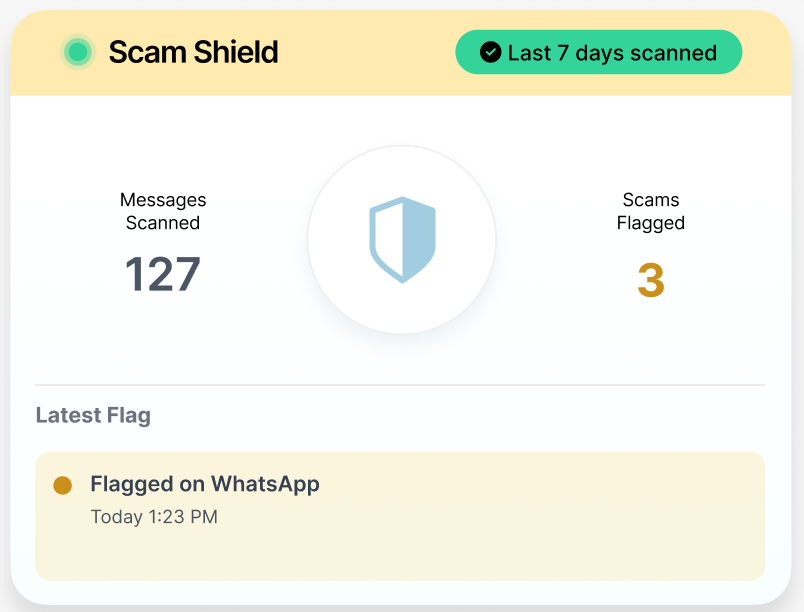Miles apart: how to support your parents from a distance

You met someone from another country and settled down in their home. You left for university and never looked back. You have a difficult relationship with your parents, and things are easier with space. These are just a few of the many reasons why so many of us live far from our parents.
Geographical distance can be empowering. It helps us fly the nest, find our footing, and build independent lives. But at some point, that distance can begin to feel less useful - especially as our parents grow older and start to need more support.
No one enjoys asking for help. And many in the older generation are particularly stoic - brought up to value self-reliance, they may downplay or even hide their difficulties. So how do you step in when you suspect something’s not quite right?
You’ve noticed a change… now what?
Recently, we wrote a 10-point guide on how to support parents experiencing cognitive decline. If that’s the concern, it’s a useful place to start. But if you live far away, some of the tips might feel out of reach. That’s why we’ve created this companion guide: five practical, thoughtful steps you can take as the distant (in geography only) child.
1. Start with small, regular moments of connection
The temptation to swoop in and take over is real, but it can backfire. Imagine spending your life depending on your mind, only to find it faltering, and then having your autonomy stripped away. It doesn’t feel good.
Instead, start by rebuilding connection. Schedule regular check-ins: phone calls, text messages, emails, even good old-fashioned letters. Distance often brings with it emotional drift, so work on gently closing that gap through consistent, warm, low-pressure communication.
We dive deeper into this approach in our piece, How to positively communicate with your parents in later life.
2. Try the 80:20 rule
We’re taught to ask questions, to be curious, to focus on the other person. But when you’re speaking to a parent who’s beginning to struggle cognitively, that well-intentioned instinct can become overwhelming for them.
Instead, aim for an 80:20 balance - spend most of the conversation sharing stories from your life, and just a small portion asking questions. That doesn’t mean you become a broadcaster without emotional awareness. It’s about shifting into the role of a steady, reassuring presence - offering updates, warmth, and companionship without demanding too much in return.
3. Use voicenotes to build a digital bond
Busy professionals may groan at the mention of voicenotes - they’re often seen as clunky or inefficient. But for long-distance family connection, they’re gold.
Voicenotes sit in a sweet spot between texting and calling. At Chatsie, we’ve made them even easier: voicenotes can be dictated (easier for the sender) and transcribed (faster for the recipient).
Think of them as modern-day postcards. See something that reminds you of your childhood? Send a voicenote. Hear a song that takes you back? Send a voicenote. These small moments build a lasting bank of connection in a format that’s rich, human, and easy to revisit.
4. Set up their tech for true independence
This one’s a heavier lift, but it makes all the difference. Your goal should be to create a setup where your parents can manage their lives confidently, without needing you on standby for every hiccup. That might require a physical visit to get things in order, or supporting someone local to do it.
Focus on the pillars of daily living: finances, health, travel, and community. Yes, it might take multiple attempts to get them comfortable with their online banking or their Uber app, but independence in these areas fuels self-worth and security.
Explore apps with built-in accessibility or assistance features - they’re more common than you might think.
5. Build your “on the ground” support network
There’s only so much you can do from a distance. The final piece of the puzzle is assembling a support system where they live.
Ideally, this includes another family member - often a sibling who stayed nearby, but that’s not always an option. Instead, consider neighbours, friends, or trusted community figures who can check in and keep you updated. Many local organisations and community centres offer trained staff and social programming for older adults. They’re a great resource for both companionship and tech support.
The goal isn’t to outsource care - it’s to co-create a local web of support with eyes, ears, and hearts on the ground.
In summary:
- Prioritise regular moments of connection—it’s the emotional thread that ties everything together.
- Ease off the questions—try an 80:20 approach to take the pressure off.
- Voicenotes are powerful—use them to share memories and affection.
- Invest time in setting up tech—true independence starts with confidence.
- Think ecosystem, not hero—build a local network you can rely on.
Living far away from your parents doesn’t mean you can’t show up for them. It just means being more intentional about how you do it.



